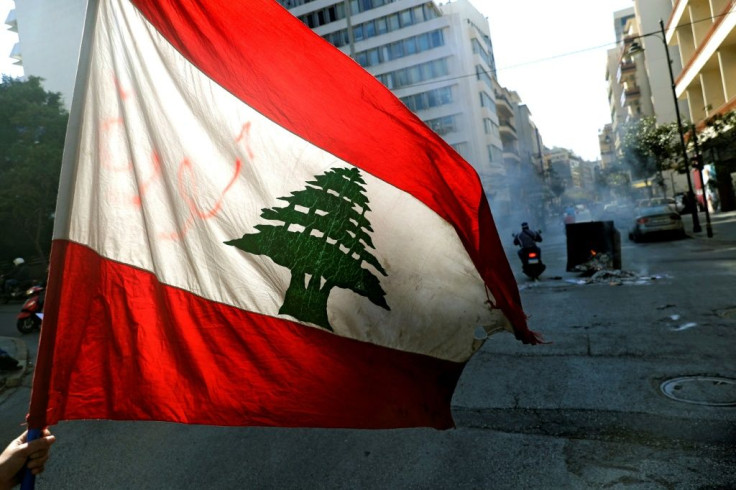Lebanon Crisis Among World's Worst Since 1850s: World Bank
Lebanon's economic collapse is likely to rank among the world's worst financial crises since the mid-19th century, the World Bank said in a damning report released Tuesday.
The report predicts that Lebanon's economy will shrink by close to 10 percent in 2021 and stresses there is "no clear turning point in the horizon".
Lebanon defaulted on its debt last year, the currency lost around 85 percent of its value and poverty is devastating a country once seen as a beacon of prosperity in the region.
"The economic and financial crisis is likely to rank in the top 10, possibly top 3, most severe crisis episodes globally since the mid-nineteenth century," the report said.
The latest World Bank Lebanon Economic Monitor report, entitled "Lebanon Sinking: To the Top 3", said such brutal economic collapses are usually the result of war.
The complete meltdown of Lebanon's economy during the past 18 months is widely blamed on corruption and mismanagement by the country's hereditary political elite.
"Policy responses by Lebanon's leadership to these challenges have been highly inadequate," the report says.
Lebanon's ruling class has failed to act on the country's worst emergency in a generation, which was compounded by the coronavirus pandemic and a devastating explosion at Beirut port last August.
"The increasingly dire socio-economic conditions risk systemic national failings with regional and potentially global effects," the World Bank said.
The International Monetary Fund has offered assistance but the country's political barons have failed to even form a government that could deliver the reforms on which foreign aid is conditioned.

"Subject to extraordinarily high uncertainty, real GDP is projected to contract by a further 9.5 percent in 2021," said the World Bank, dashing any hopes of a quick recovery.
According to the monetary institution, the economy contracted by 6.7 percent in 2019 and 20.3 percent in 2020.
The solutions the Lebanese authorities have so far opted for to ease the financial crisis have placed much of the burden on small depositors.
The report warned of "potential triggers to social unrest" in a country with a history of conflict and instability.
"The increasingly dire socio-economic conditions risk systemic national failings with regional and potentially global effects," it said.
The bankrupt state is unable to settle many of its bills and Lebanon's own energy minister, Raymond Ghajar, has warned that electricity supply was becoming critical and that the country could be plunged into total darkness by June's end.
"The sharp deterioration in basic services would have long-term implications: mass migration, loss of learning, poor health outcomes, lack of adequate safety nets, among others," the report said.
"Permanent damage to human capital would be very hard to recover," said the World Bank Lebanon Economic Monitor, whose previous report was entitled "The Deliberate Depression".
"Perhaps this dimension of the Lebanese crisis makes the Lebanon episode unique compared to other global crises," it said.
Some teachers in Lebanon are now earning the equivalent of less than $200 monthly, doctors are increasingly looking for work abroad and many students can no longer afford university tuition.
© Copyright AFP {{Year}}. All rights reserved.





















